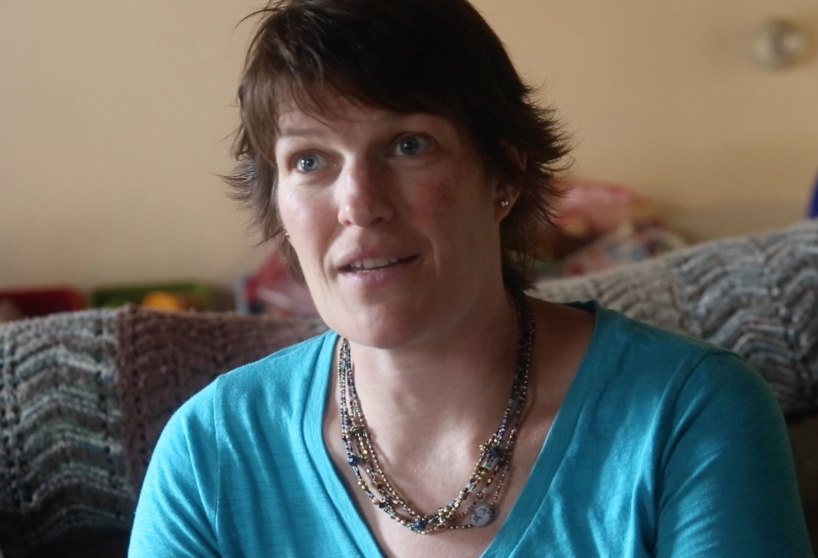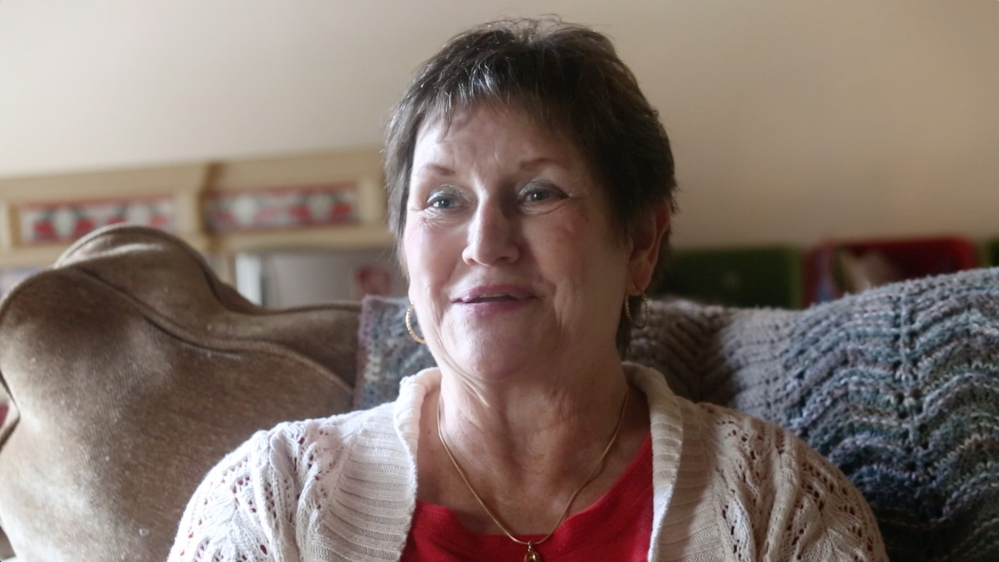Jen Bowie and her mother, Linda Kelly, do a lot together. This year, that took on a whole new meaning.
Last spring, Bowie, 40, and Kelly, 67, each had a double mastectomy. In January they had total hysterectomies, with the removal of their ovaries, within 10 days of each other.
The surgeries were elective. Both Bowie and Kelly were – and still are – the picture of health.
“A lot of people have said that it was a brave decision,” Bowie says. “To me, it was just the logical thing to do.”
Bowie, who lives in Raymond with her husband and two young daughters, was at a doctor’s appointment last year when the doctor mentioned the practice had just become licensed to do genetic testing. Bowie figured it couldn’t hurt to fill out a questionnaire to find out whether she was eligible for testing. She was, and her insurance covered most of the cost.
Tests showed that Bowie had inherited the BRCA2 gene mutation, which greatly increases the chance of developing breast cancer and ovarian cancer.
About 12 percent of women will develop breast cancer sometime during their lives, according to the National Cancer Institute. That number skyrockets for those with the BRCA2 mutation; 45 percent of women who inherit the mutation will develop breast cancer by the age of 70. Eleven to 17 percent of those who inherit the mutation will develop ovarian cancer by that age.
Surgery – prophylactically removing both breasts – is the most aggressive and most effective treatment option, reducing the risk of breast cancer by about 95 percent. There are no definitive studies yet on how many women are making the choice to have preventive mastectomies. But Dr. Ari Brooks, director of the Integrated Breast Center at Pennsylvania Hospital, says there’s no doubt the number is on the rise.
“All breast surgeons,” said Brooks in an email, “are doing bilateral mastectomies more frequently now because of BRCA testing.”
One of the first things Jen Bowie did after getting the news was call her mom, who lives in Gorham.
“And she said, ‘Mom, it did come out positive,'” Linda Kelly says. “‘I have a BRCA2 gene mutation, so you and dad need to get tested.'”
Kelly was pretty sure that she had passed the rare mutation to their daughter. She has four first cousins who had breast cancer and a favorite aunt who died of ovarian cancer.
She was right. She was also thankful that she and her daughter found out before either of them had gotten sick.
“We both were very grateful that this testing, this mutation, had been identified,” Kelly says.
Dr. Loren Rourke, director of Maine Medical Center’s Breast Care Center and the surgeon who did the mastectomies for Bowie and Kelly, says many women with the BRCA2 mutation will never develop breast cancer, but the patients who choose radical surgery simply have no interest in living with a time bomb lurking in their DNA.
“(It’s) enough to compel them to say, ‘I don’t know which side I’m on, but those odds are not in my favor, and I’m not gambling on this one,'” Rourke says.
Rourke stresses to her patients that discovering they are carriers of the BRCA2 mutation isn’t an emergency and that they should take plenty of time to weigh their options.
“I look for, on the day of surgery, that peace I see in a patient’s eyes,” Rourke says, “when I know they’ve had time to think about it and they’ve made the right decision.”
Both Bowie and Kelly reached that peaceful place pretty quickly.
“I didn’t want to get cancer,” Bowie says. “So I didn’t want to go the route of early detection because there’s no guarantee they’re going to find it in time.”
Her mother, who often jokes about living into her 90s so she can see her grandchildren marry, came to the same conclusion.
“I had no reservations about it,” says Kelly. “I had no questions as time went on … that, ‘Gee, maybe I’ll change my mind.’ It was, ‘I’m going to do this because I want to live a long, healthy life.'”
Kelly says it helped that one of Hollywood’s most celebrated actresses made the same decision.
“If Angelina Jolie can go through this, then so can I,” she says with a laugh.
They both say they were lucky that insurance picked up much of the tab. The biggest challenge was having to take it easy as they recovered.
Bowie had to take a break from playing with her soccer league team, the Hot Flashes. And she couldn’t lift her kids, 2-year-old Julia and 4-year-old Anna, for a few weeks. Kelly, who stacked six cords of wood by herself the year before, had to stay away from the woodpile.
“This year there’s three cord still sitting in the backyard, and now I can start to do it,” Kelly says with a big smile.
Neither has any regrets.
“It was the right choice for me,” Bowie says, “and it was the right choice for my mom. But I think the important thing is at least having the information to be able to make that choice about your future.”
A future that now feels much more secure.
“I am extremely grateful,” Kelly says, looking over at her daughter, “that we’re going to have each other for a long time.”
———————
Clarification: This story was revised at 11:57 a.m. Nov. 12, 2014, to reflect that about 12 percent of women will develop breast cancer sometime during their lives, according to the National Cancer Institute. That number skyrockets for those with the BRCA2 mutation; 45 percent of women who inherit the mutation will develop breast cancer by the age of 70. Eleven to 17 percent of those who inherit the mutation will develop ovarian cancer by that age.
Send questions/comments to the editors.



